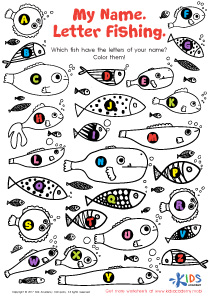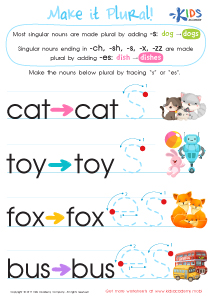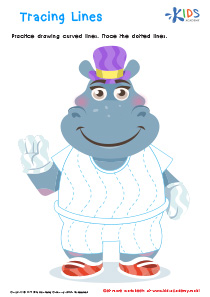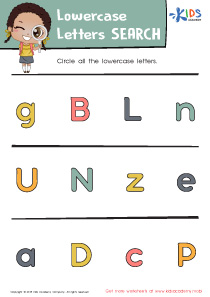Letter recognition Easy Phonics Worksheets for Ages 3-7
4 filtered results
-
From - To
Unlock your child's reading potential with our "Letter Recognition Easy Phonics Worksheets for Ages 3-7." These engaging and colorful worksheets are designed to help young learners master the alphabet through fun and interactive activities. Ideal for preschool and early elementary kids, our worksheets make learning letters enjoyable while enhancing phonics skills. From tracing to matching, each exercise is crafted to reinforce letter identification and sound association. Perfect for parents and teachers alike, our resources provide essential practice to build a strong foundation for future reading success. Download now and watch your child’s confidence soar with each new letter they learn!
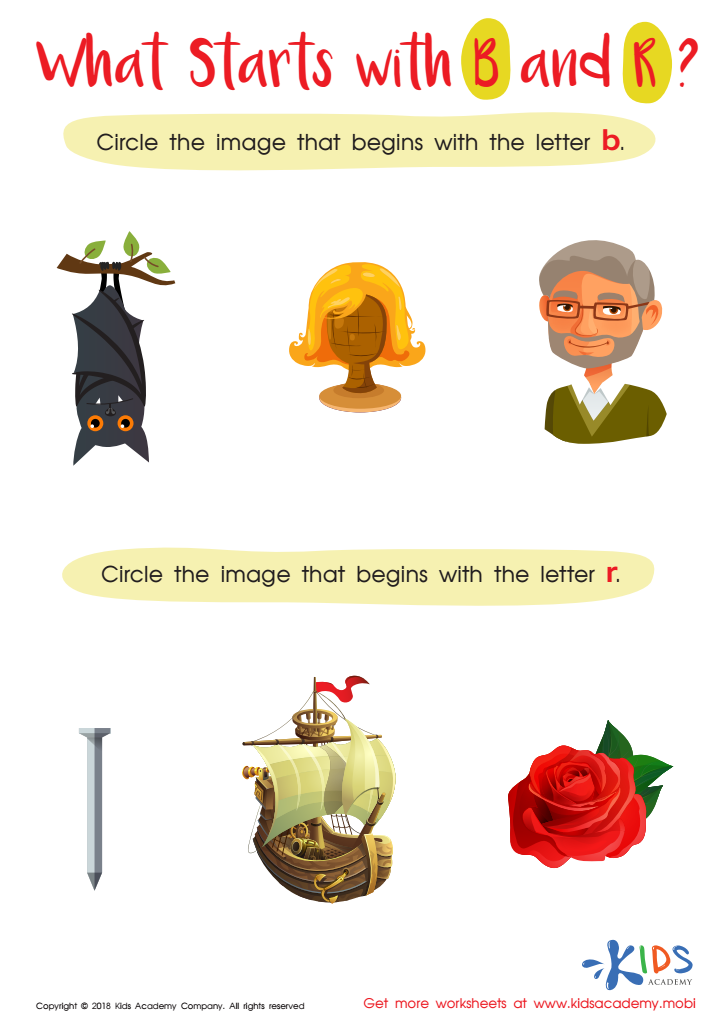

What Starts with B and R? Worksheet
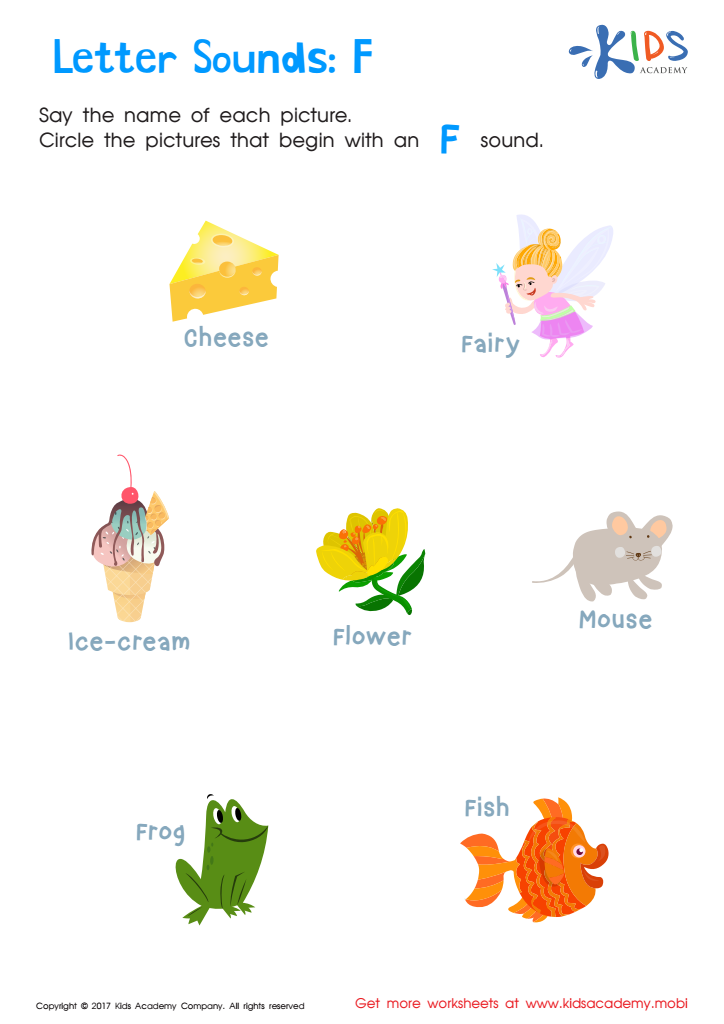

Letter F Sounds Worksheet
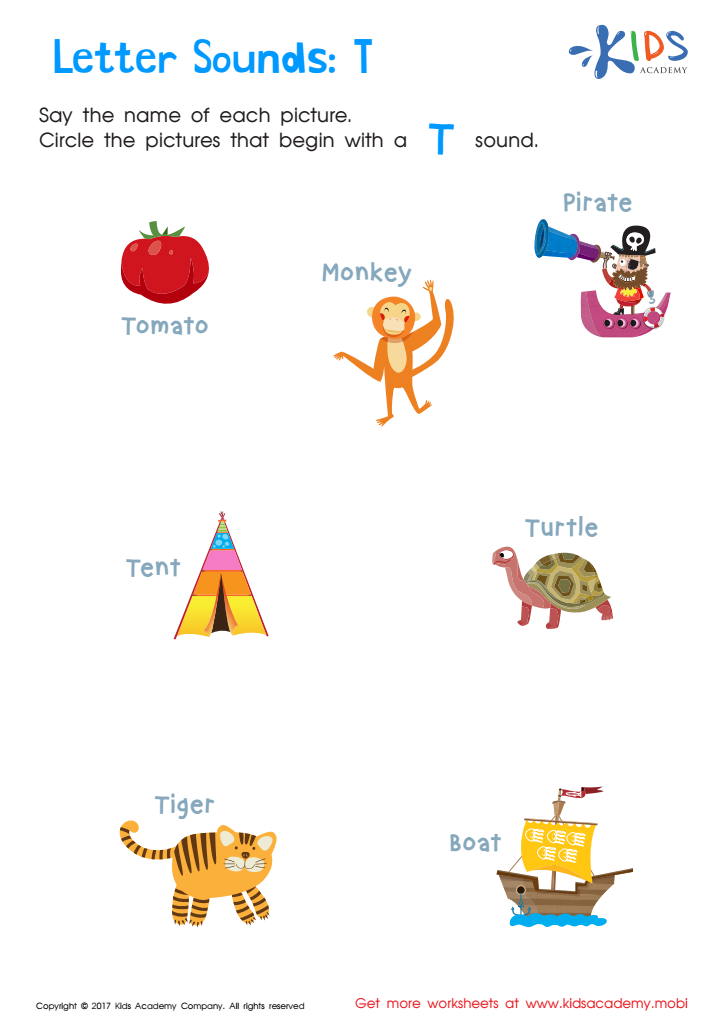

Letter T Sounds Worksheet
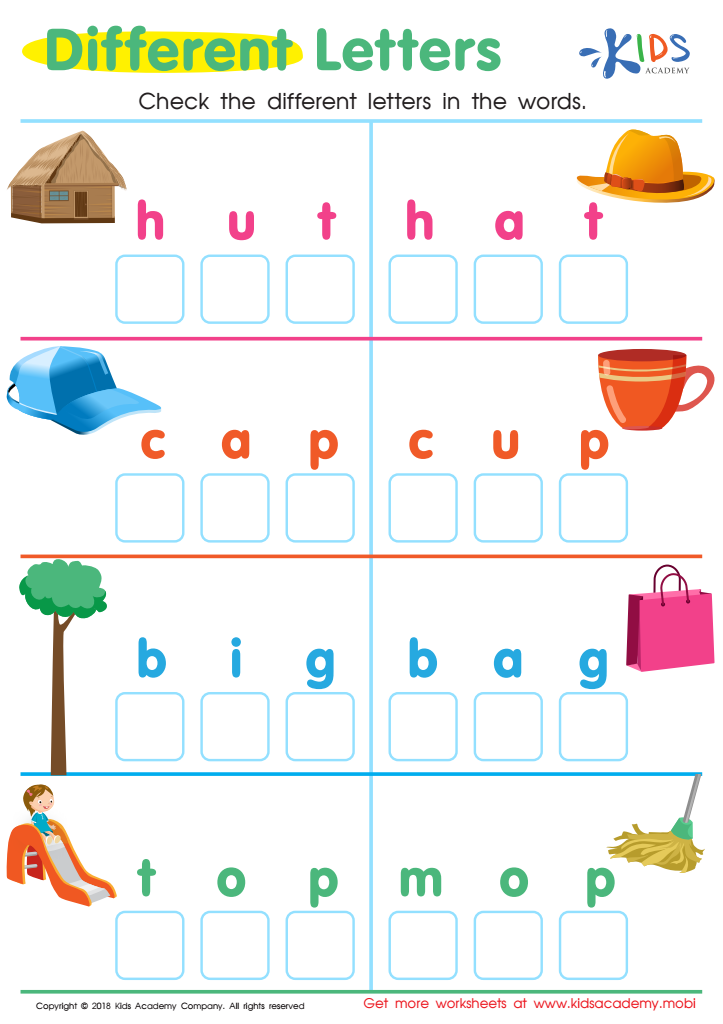

Different Letters Reading Worksheet
Parents and teachers should highly prioritize letter recognition and easy phonics for children aged 3-7 because these foundational skills are critical for early literacy development. During this formative period, children's brains are exceptionally receptive to learning language. Letter recognition, the ability to identify and name the letters of the alphabet, is the stepping stone to efficient reading and writing. Without this skill, children struggle with more complex literacy tasks.
Easy phonics, which connects letters to their sounds, builds on letter recognition by helping children understand the relationship between written text and spoken language. This understanding is essential for decoding words, which supports fluent reading. Proficiency in reading has widespread benefits, including improved vocabulary, better comprehension skills, and enhanced ability to gather information independently.
Moreover, early success in these areas fosters a positive attitude towards learning, boosting children's confidence and motivation. For teachers, incorporating letter recognition and phonics activities into the curriculum ensures that students develop the necessary skills in a structured and engaging manner. For parents, supporting these efforts at home through playful learning activities further reinforces these skills. By focusing on letter recognition and phonics during these critical years, adults can significantly influence children's long-term academic readiness and success.

 Assign to My Students
Assign to My Students











